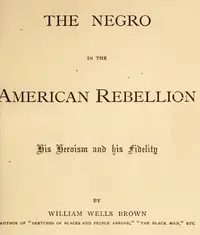"The Rising Son; or, the Antecedents and Advancement of the Colored Race" by William Wells Brown is a historical exploration of the African race, challenging misconceptions prevalent in the 19th century. The author embarks on a mission to provide an accurate portrayal of African history, acknowledging the scarcity of resources while vowing to highlight both strengths and weaknesses. The narrative emphasizes the importance of understanding African heritage, spotlighting the contributions of ancient civilizations like Ethiopia. In addition, the book traces the personal journey of William Wells Brown himself, from enslavement to his rise as a leading abolitionist voice, establishing him as a beacon in the struggle for African-American rights.

The Rising Son; or, the Antecedents and Advancement of the Colored Race
By William Wells Brown
Witness the untold history of a people, rising from the shadows of slavery to claim their rightful place in the narrative of civilization.
Summary
About the AuthorWilliam Wells Brown was an American abolitionist, novelist, playwright, and historian. Born into slavery near Mount Sterling, Kentucky, Brown escaped to Ohio in 1834 at the age of 19. He settled in Boston, Massachusetts, where he worked for abolitionist causes and became a prolific writer. While working for abolition, Brown also supported causes including: temperance, women's suffrage, pacifism, prison reform, and an anti-tobacco movement. His novel Clotel (1853), considered the first novel written by an African American, was published in London, England, where he resided at the time. It was later published in the United States.
William Wells Brown was an American abolitionist, novelist, playwright, and historian. Born into slavery near Mount Sterling, Kentucky, Brown escaped to Ohio in 1834 at the age of 19. He settled in Boston, Massachusetts, where he worked for abolitionist causes and became a prolific writer. While working for abolition, Brown also supported causes including: temperance, women's suffrage, pacifism, prison reform, and an anti-tobacco movement. His novel Clotel (1853), considered the first novel written by an African American, was published in London, England, where he resided at the time. It was later published in the United States.


















